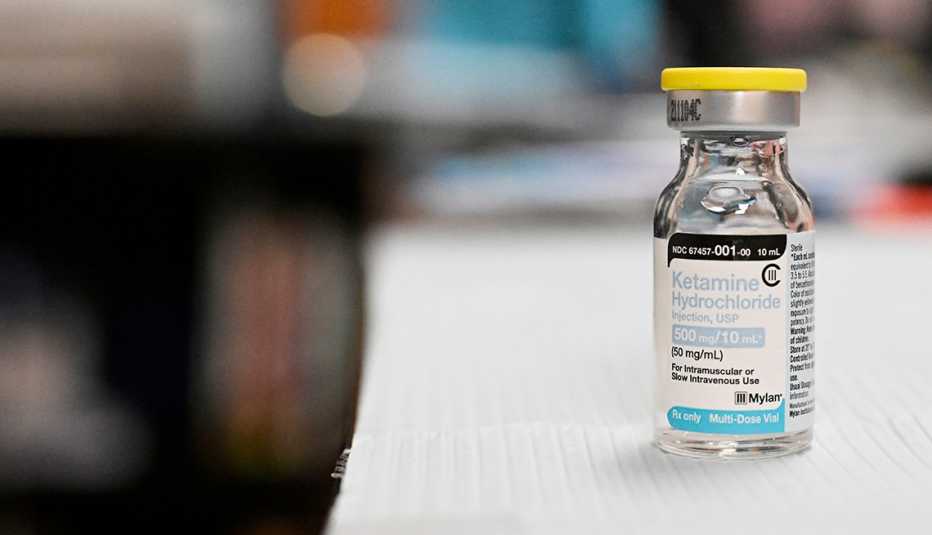AARP Hearing Center


The drug ketamine has been thrust back into the spotlight after five people were charged with having roles in the Oct. 28, 2023, death of Friends star Matthew Perry from “acute effects” of the medication, raising questions about its use and its role in health care.
While sometimes thought of as a party drug that goes by the name Special K, ketamine has long been a staple in operating rooms as an anesthetic. More recently, doctors have been turning to ketamine as a treatment option for some patients with chronic pain, depression and other health conditions.
Here are four things to know about ketamine therapy.
1. Ketamine’s use is increasing
Ketamine was approved as an anesthetic for surgery by the Food and Drug Administration (FDA) in 1970, and in 2019, a form of the drug, called esketamine, was approved as a nasal spray to treat depression in adults who don’t respond to antidepressant medicines.
However, increasingly, the drug is being used off-label — often as an infusion — at outpatient clinics and in some major medical centers. Off-label use is when doctors prescribe an approved drug for an unapproved use; the Agency for Healthcare Research and Quality says the practice is both legal and common.
Wellness and telemedicine companies are even selling altered ketamine tablets and sprays for at-home use, though health experts caution that the drug should not be used without medical supervision, and that doing so can be dangerous.


One reason for ketamine’s recent rise in popularity has to do with the high burden of mental health issues we’re seeing in the U.S., says Smita Das, M.D., a clinical associate professor of psychiatry and behavioral sciences at the Stanford School of Medicine and chair of the American Psychiatric Association’s Council on Addiction Psychiatry. “With COVID especially, there was an increase in depression and anxiety symptoms among adults and children in the U.S.,” Das says. And now, people are looking for ways to treat it.
There’s also been a swell of research supporting the drug’s effectiveness for treating depression, especially treatment-resistant depression. A large study, published in The American Journal of Psychiatry, found that patients with treatment-resistant depression saw their symptoms significantly improve when they started taking esketamine nasal spray along with their antidepressant. Another study, published in JAMA Psychiatry, found that patients who took esketamine with their antidepressant stayed in remission longer than people who took only their antidepressant.





































































More From AARP
Suicide Warning Signs in Older Adults
Rates rising among older adults, especially menThe Link Between Drinking and Depression
Unhealthy drinking habits? Your mental health could be at stake
How to Find the Right Therapist
Whether your mental health needs feel pandemic-specific or not, help is available
Recommended for You